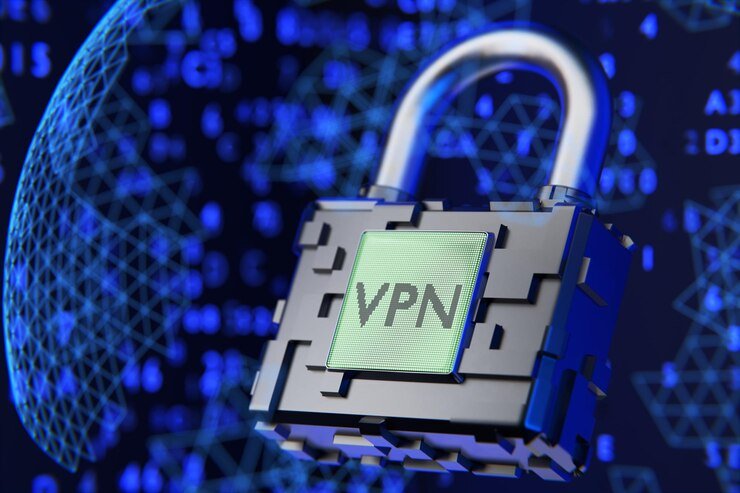Introduction to Intellectual Property (IP)
Intellectual Property (IP) is a term that’s become increasingly important in our digital world. With the rapid growth of technology and creative industries, understanding who owns IP has never been more crucial. Whether you’re an artist, a business owner, or just someone curious about how ideas are protected, knowing your rights can help safeguard your innovations.
Imagine pouring your heart and soul into a project only to see it copied without permission. Or think about the potential profits lost when others use your ideas without giving credit where it’s due. This isn’t just about ownership; it’s also about respect for creativity and hard work.
In this guide, we’ll dive deep into the world of IP ownership rights and responsibilities. You’ll learn what intellectual property encompasses, discover the different types available, and understand why protecting these assets is essential for everyone involved in creation. Join us as we unravel the complexities surrounding IP—because knowledge is power when it comes to who owns IP!
Understanding IP Ownership Rights
Intellectual Property ownership rights are fundamental for creators and inventors. They grant exclusive control over original works, inventions, or brands.
These rights enable the owner to reproduce, distribute, and display their creation without interference. This exclusivity encourages innovation by rewarding creativity.
Ownership typically lies with the creator but can also transfer through contracts or assignments. Understanding who owns IP is crucial in business agreements and collaborations.
Different forms of IP—like patents, copyrights, trademarks—come with distinct regulations governing ownership rights. Knowing these nuances helps prevent disputes down the line.
Moreover, understanding your rights entails recognizing how long they last and what actions might infringe on them. Awareness of these factors empowers you to assert your interests effectively in a competitive landscape.
Importance of IP Ownership
Intellectual Property (IP) ownership is crucial in today’s innovation-driven world. It empowers creators and inventors to safeguard their unique ideas, inventions, and works from unauthorized use.
When individuals or businesses hold IP rights, they gain control over how their creations are utilized. This control not only fosters creativity but also encourages investment in new projects.
Moreover, owning IP can be a significant asset for companies. It has the potential to enhance brand reputation and create revenue streams through licensing agreements and partnerships.
Understanding who owns IP ensures that rightful owners can defend against infringement effectively. This defense is vital for maintaining competitive advantages in various industries.
Strong IP ownership contributes to economic growth by incentivizing research and development while promoting fair competition among businesses.
Types of IP and Their Respective Ownership Rights
Intellectual Property (IP) comes in various forms, each with its own unique ownership rights. Understanding these distinctions is crucial for creators and businesses alike.
Patents protect inventions and processes. The owner has exclusive rights to make, use, or sell the invention for a specified period. This prevents others from exploiting the innovation without permission.
Trademarks safeguard brand identity. They cover logos, names, and slogans that distinguish goods or services in the marketplace. Trademark owners can take action against unauthorized use that may confuse consumers.
Copyrights focus on original works of authorship like books, music, and films. The creator holds exclusive rights to reproduce and distribute their work while granting limited permissions through licenses.
Trade secrets represent confidential business information that provides a competitive edge. Owners must actively maintain secrecy; if disclosed, protection often dissipates quickly.
Each type of IP serves specific purposes, highlighting the diverse landscape of ownership rights available to creators.
Responsibilities of IP Owners
Owning intellectual property comes with significant responsibilities. IP owners must actively protect their creations from unauthorized use. This means monitoring the market and being vigilant against potential infringements.
Additionally, they have to enforce their rights when necessary. This could involve sending cease-and-desist letters or pursuing legal action against infringers. Protecting your work is not just about ownership; it’s about maintaining its value.
Moreover, ethical considerations play a role in IP ownership. Owners should respect other creators’ rights and avoid plagiarism or copying without permission. Upholding these standards fosters creativity within industries.
IP owners also need to stay informed about relevant laws and regulations that govern their assets. Continuous education ensures that they can adapt to any changes in the legal landscape affecting their intellectual property rights.
Proper licensing agreements are essential for sharing IP while retaining control over its usage. Clear terms help prevent future disputes and misunderstandings regarding ownership and permissions.
How to Protect Your IP Rights
Protecting your IP rights is crucial in today’s competitive landscape. Start by registering your intellectual property with the appropriate authorities. This formal recognition can strengthen your position if disputes arise.
Regularly monitor the market for potential infringements. Keeping an eye on competitors and similar products can help you spot unauthorized use of your creations early on.
Consider implementing non-disclosure agreements (NDAs) when sharing sensitive information with partners or employees. These legal documents establish clear boundaries regarding confidentiality.
Educate yourself about IP laws relevant to your industry. Knowledge empowers you to navigate complexities and take action when necessary.
Stay proactive in enforcing your rights. If you discover infringement, consult a legal expert who specializes in intellectual property law to explore available options for resolution and protection.
Common Misconceptions about IP Ownership
Many people believe that simply creating something automatically grants them ownership. This is not always the case. If you produce work while employed, your employer may hold the rights.
Another common misconception is that registering IP is a mere formality. In reality, proper registration can significantly impact your ability to enforce your rights and defend against infringement.
Some think copyright covers all forms of expression, but that’s misleading. Copyright protects original works but excludes ideas themselves or facts.
People often confuse trademarks with copyrights as well. Trademarks protect brands, logos, and slogans rather than artistic creations.
Many assume once they own IP rights, their responsibilities end there. Maintaining those rights requires vigilance in monitoring usage and enforcing claims against infringers. Awareness of these misconceptions can help creators navigate the complex world of intellectual property more effectively.
Conclusion: Importance of Knowing Your IP Ownership Rights
Understanding IP ownership rights is essential for anyone involved in creative or innovative work. Knowing who owns IP can protect your creations and ensure you benefit from them. It’s not just about legalities; it’s about respect for the effort and creativity that goes into producing original works.
When individuals and businesses are informed about their rights, they become empowered to safeguard their intellectual property effectively. This knowledge helps prevent disputes and misunderstandings down the line, allowing creators to focus on what they do best: creating.
Whether you’re a musician, an artist, a tech developer, or simply someone with a great idea, being aware of your IP ownership rights can influence your success. Be proactive in protecting what you’ve created by understanding the responsibilities tied to those rights. After all, owning IP means more than just having control—it also involves ensuring its integrity and value in today’s competitive landscape.
Take charge of your intellectual property journey by educating yourself on these critical aspects. Your ideas deserve protection, and knowing who owns IP is the first step toward safeguarding them effectively.
RELATED POSTS
View all


